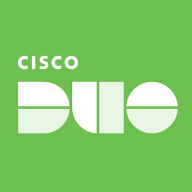

Cisco Duo and Red Hat Single Sign On are leading authentication solutions. Cisco Duo appears to have the upper hand due to its stronger focus on security and customer support.
Features: Cisco Duo users highly value its multi-factor authentication, ease of use, and robust security features. Red Hat Single Sign On is praised for its flexibility, scalability, and ability to support a wide range of identity providers.
Room for Improvement: Cisco Duo users desire more comprehensive reporting and analytics tools. Red Hat Single Sign On reviewers cite the need for a more intuitive setup process and enhanced documentation.
Ease of Deployment and Customer Service: Cisco Duo is noted for its straightforward deployment and responsive customer support. Red Hat Single Sign On, while powerful, is reported to have a more complex deployment process and mixed reviews on support responsiveness.
Pricing and ROI: Cisco Duo's pricing is seen as reasonable for the features delivered, with positive ROI feedback from users. Red Hat Single Sign On is valued for its cost-effectiveness in large-scale deployments but has mixed ROI reviews.
| Product | Market Share (%) |
|---|---|
| Cisco Duo | 3.5% |
| Red Hat Single Sign On | 2.0% |
| Other | 94.5% |


| Company Size | Count |
|---|---|
| Small Business | 31 |
| Midsize Enterprise | 18 |
| Large Enterprise | 39 |
Cisco Duo is a cloud-based identity security platform safeguarding critical resources for any user and device worldwide. Known for its ease of use, Duo offers seamless protection across multi-cloud, hybrid, and on-premises environments.
Cisco Duo is designed to secure access with identity-first protection and provides extensive visibility throughout an organization's identity ecosystem. Offering multi-factor authentication, Duo facilitates easy integration and management, allowing teams to protect data effectively on VPNs, applications, and networks. Its single-pane management improves security processes while enhancing trust, making it suitable for diverse IT infrastructures.
What are the key features of Cisco Duo?
Which benefits and ROI should users consider?
In industries like education and finance, Cisco Duo is widely employed to secure multi-factor authentication across platforms such as email, databases, and servers. Its integration capabilities with Microsoft 365, Active Directory, and VPNs like AnyConnect are instrumental in verifying user identities using mobile apps or OTPs, catering effectively to both remote and on-premise environments.
Red Hat is the world’s leading provider of enterprise open source solutions, using a community-powered approach to deliver high-performing Linux, cloud, container, and Kubernetes technologies.
We monitor all Single Sign-On (SSO) reviews to prevent fraudulent reviews and keep review quality high. We do not post reviews by company employees or direct competitors. We validate each review for authenticity via cross-reference with LinkedIn, and personal follow-up with the reviewer when necessary.